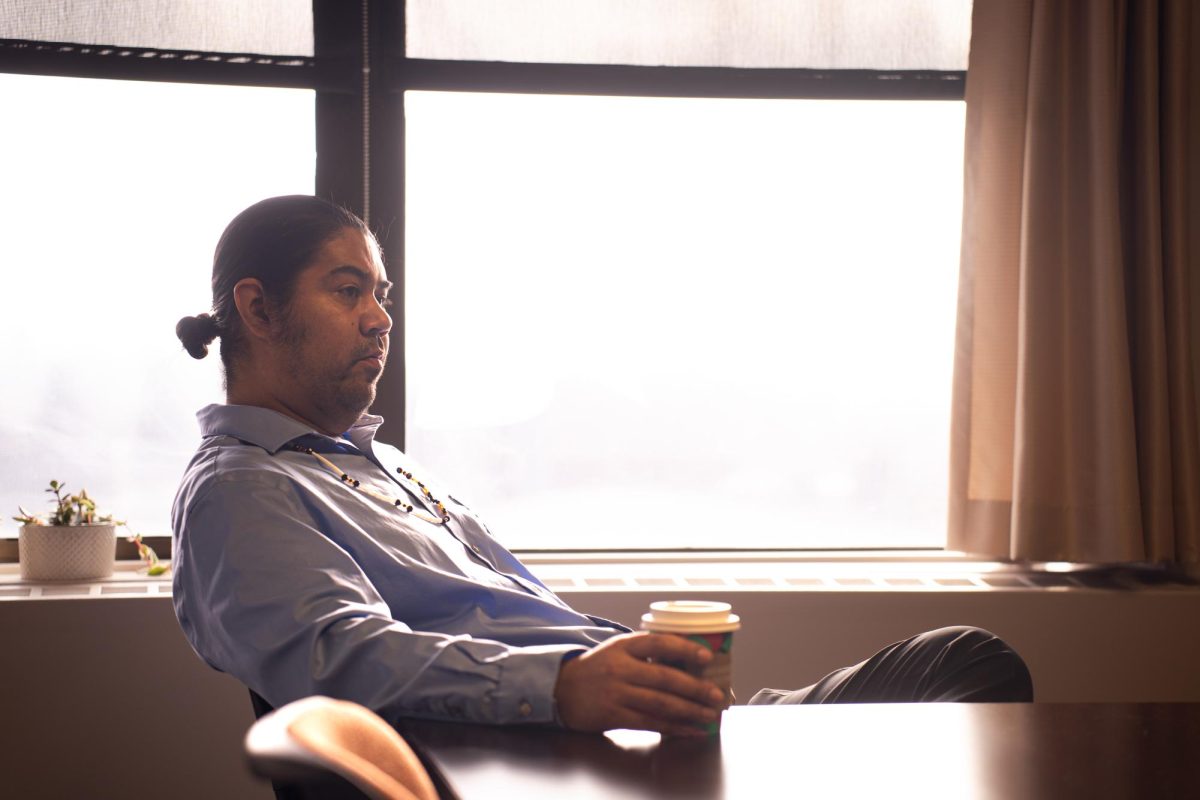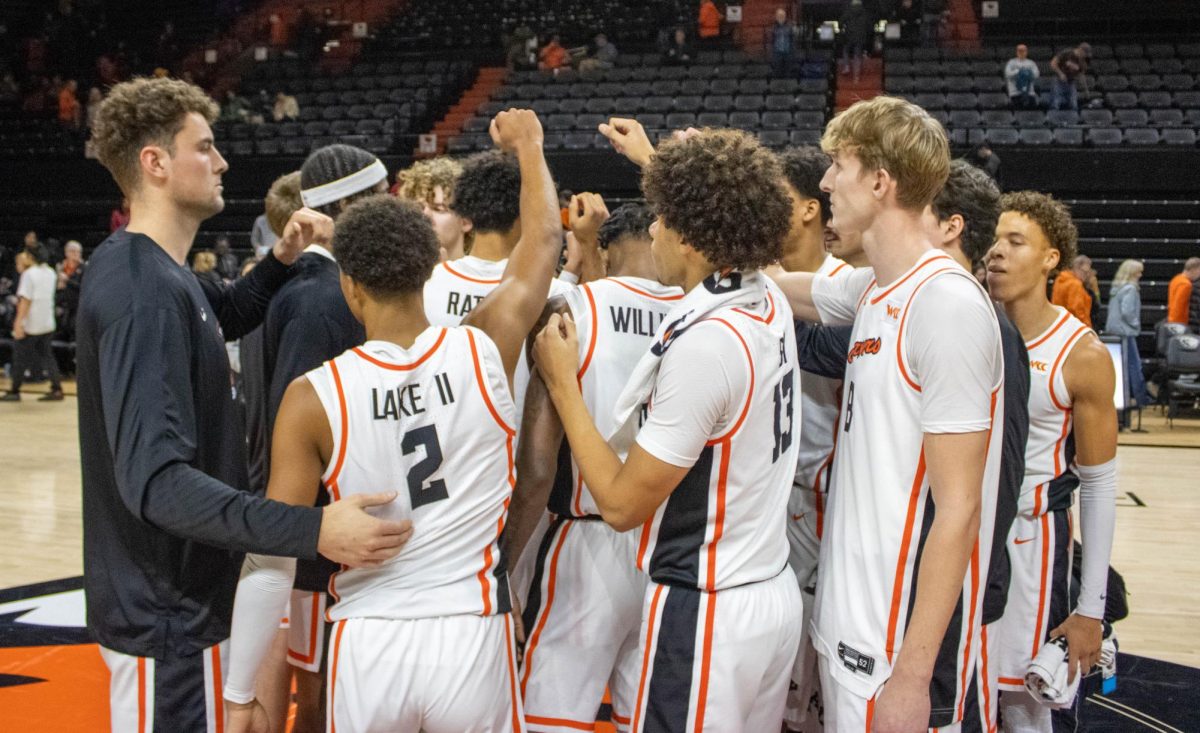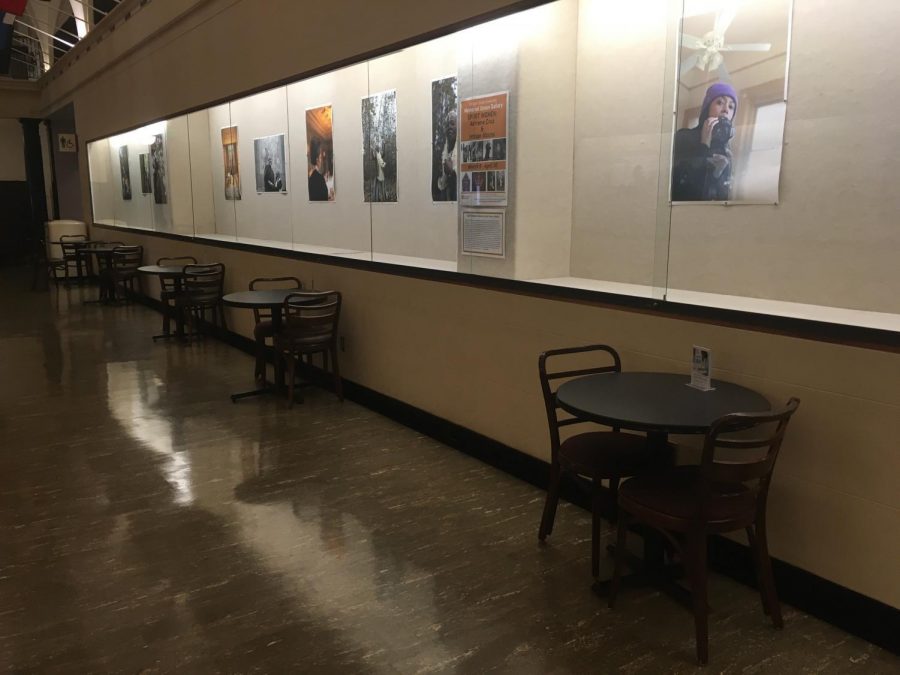UPDATE: Spring classes move fully online as campus stays open, OSU aims to ensure seniors’ timely graduation
March 19, 2020
Update, March 23, 2020: This article has been updated to include statements from Associate Provost and University Registrar Rebecca Mathern regarding academic adjustments as a result of the COVID-19 pandemic.
Spring term classes will move to remote instruction for all of spring term, according to an email sent to all Oregon State University students on Wednesday, in the middle of winter term’s finals week.
Although the Corvallis campus will remain mostly open, some services will be limited. Provost and Executive Vice President Ed Feser wrote in the email that “critical” university services and staffing will be defined in the next two days, and potential building closures will be clarified at that time. Due to the shift to remote teaching, however, students living on campus may choose to move home and receive prorated refunds for their housing fees. As for those on track to graduate this spring, if they are no longer able to finish their degree by that time due to changes in instructional delivery, the university is offering scholarships covering up to eight credits so these students can finish their degree at a later date.
The decision to move classes online until the end of spring term was made to minimize the public health risk as COVID-19 continues to spread across Oregon, with 16 Linn County residents, and two Benton County residents who are currently out of the state, having tested positive for the virus so far. Although, testing in Oregon has been limited thus far, so the true number of cases has the potential to be higher.
Students currently living on campus will be allowed to break their housing contract with OSU if they choose to move out of the residence halls. Cancellation fees will not apply, and housing fees and meal plans will be refunded on a prorated basis.
Anyone spending time on campus next term will have to abide by OSU’s 25-person attendance limit for school-sponsored or school-sanctioned events.
One university event in jeopardy is the class of 2020’s commencement. Commencement activities at other schools nationwide, such as UCLA, will be held virtually, but OSU is holding off on that decision.
Steve Clark, vice president of University Relations and Marketing, said, “We are very mindful of the importance of that day, very mindful of the thousands of students that have worked so hard to complete their education as undergraduate and graduate students, and the 25,000-30,000 family members who plan to come to Reser Stadium to see their students and friends graduate. Over the next several days, several weeks, we will fully evaluate the safety of all events at Oregon State University being held in the future, including commencement.”
Clark also noted that Oregon Governor Kate Brown has issued a currently-in-effect statewide ban on gatherings over 25 over people, which the university is observing.
Seniors on the path to graduation who may be delayed by being unable to take a class required for their degree this spring will be offered a scholarship covering up to 8 credits, redeemable in a subsequent term.
Whether student fees will also be covered by this scholarship has not yet been discussed, Clark said, although he expects the university will be mindful that student fees are part of students’ considerations.
According to Clark, funding for these scholarships could potentially come from the OSU Foundation and the state or federal government.
“We’re in discussion with the OSU Foundation about the assistance of the Foundation and fundraising with donors all to enable students to continue on the pathway to graduation. We recognize that many of the things that will affect the university as a result of COVID-19 are yet to be precisely calculated, for employees, for students, and for the university as a whole,” Clark said. “And so we’re making it clear to our state and federal leaders that the impact of COVID-19 and the very appropriate public health response that we’re engage in is going to come at significant expense and were saying to our state leaders and our federal leaders that they, the state leaders and the federal government, must step up and provide additional financial resources.”
According to Rebecca Mathern, associate provost and university registrar, students who aren’t able to finish their degree in the spring and who won’t be able to return in subsequent terms will work with their advisor or major professor and come up with an individualized plan.
However, Mathern said the only classes that have been cancelled so far due to coronavirus precautions are a few physical activity courses which could not be taught while following social distancing guidelines, and the students enrolled in these classes have been notified.
Mathern said she is grateful for the adaptibility students and staff have shown throughout the transition to remote education, and hopes students will continue to prepare for spring term.
“We hope all students test their remote access and contact the help desk if they have questions prior to the start of spring term so that everyone is in their seat, wherever that may be, and ready to learn on the first day of the term,” Mathern said via email.
The all-student email sent by Feser also states employees will be given 80 additional paid leave hours as part of the OSU’s COVID-19 response, based on levels of employment, meaning that employees working less than full-time will receive a prorated amount of additional hours.
The university currently has no plans to alter the price of tuition next term.
Clark urges the OSU community to continue to work together to move forward and take action to slow the spread of COVID-19.
“I would ask everyone within the university to continue to be as collaborative and as resilient as they have been, and I would ask them to continue to be so, because we will be in this measured process of resistance to the disease for some time and that’s gonna require all of to help each other, to support each other, and be very mindful of public health requirements such as social distancing,” Clark said.













































































































